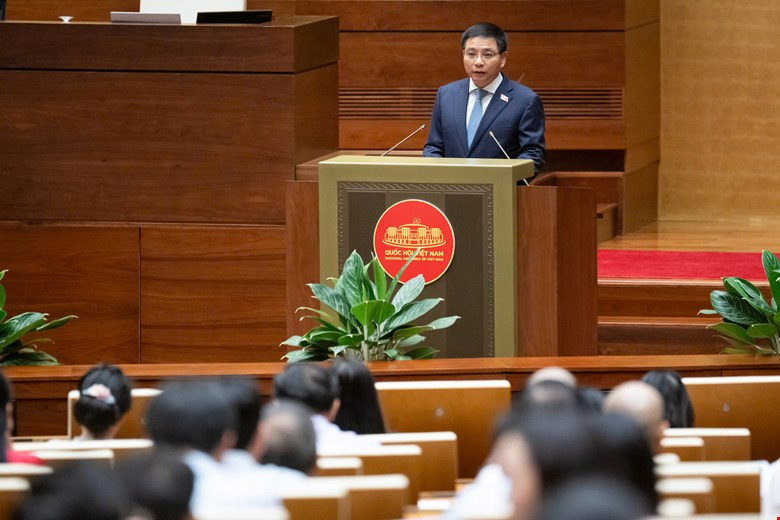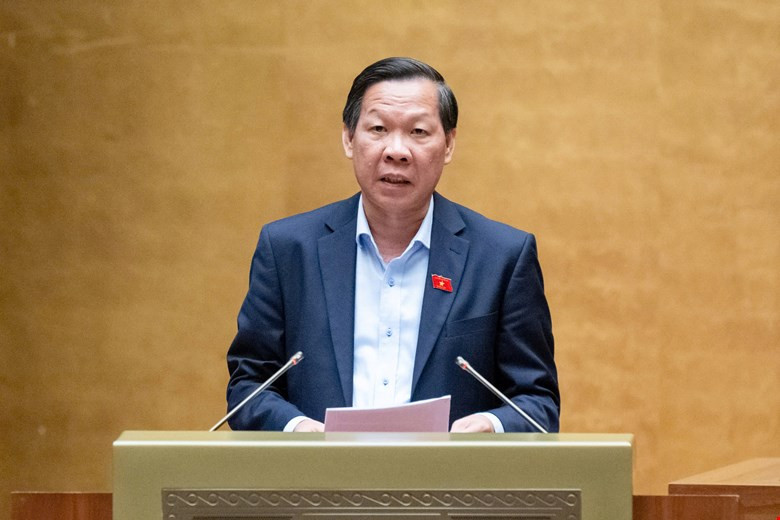Vietnam's Ministry of Finance has proposed extending the agricultural land use tax exemption through the end of 2030, a move that could waive approximately 7.5 trillion VND (around $295 million USD) in taxes annually.

Finance Minister Nguyen Van Thang speaks at the National Assembly. Photo: NA
Speaking before the National Assembly on the morning of May 13, Finance Minister Nguyen Van Thang presented the draft resolution, which seeks to extend the current tax exemption policy beyond its current expiration.
The exemption, governed by Resolutions 55/2010/QH12, 28/2016/QH14, and 107/2020/QH14, is currently valid through December 31, 2025. The proposed extension would continue the policy from January 1, 2026 through December 31, 2030.
Supporting farmers and strengthening agriculture
The goal of the extension is to support individuals and organizations investing in agriculture, boost rural livelihoods, restructure the agricultural sector, and enhance the competitiveness of Vietnamese agricultural products on the international stage.
Minister Thang emphasized that continuing the tax exemption would not impact state budget revenue, as the policy is already in effect and the associated revenue is not currently collected. He framed the proposal as a direct and practical form of support for farmers and rural communities.
“This policy not only creates jobs and improves livelihoods but also encourages long-term commitment to agricultural production,” said Thang. “It is a vital tool for attracting investment and promoting sustainable agricultural development.”
Only 5.5% of businesses are in agriculture

According to the Ministry of Agriculture and Environment, Vietnam has around 50,000 enterprises operating in the agricultural sector - just 5.5% of the country’s more than 900,000 businesses. Of these, 96% are classified as small or micro-sized enterprises.
Phan Van Mai, Chairman of the Economic and Financial Committee, affirmed in a review report that the tax exemption policy has been in place for a long time, and most stakeholders are accustomed to the zero-tax approach.
Given the current economic conditions, most committee members agreed with the Government's proposal to maintain the exemption through 2030 to avoid increasing the cost of agricultural production.
However, some committee members expressed concerns about the lack of incentives for efficient land use under a blanket exemption policy. They warned that indiscriminate exemptions may contribute to agricultural land being wasted or left idle, undermining land consolidation efforts and large-scale production.
Mai recommended conducting a nationwide review of agricultural land use to redesign the tax exemption policy as a tool to promote more efficient and sustainable land utilization.
The Vinh